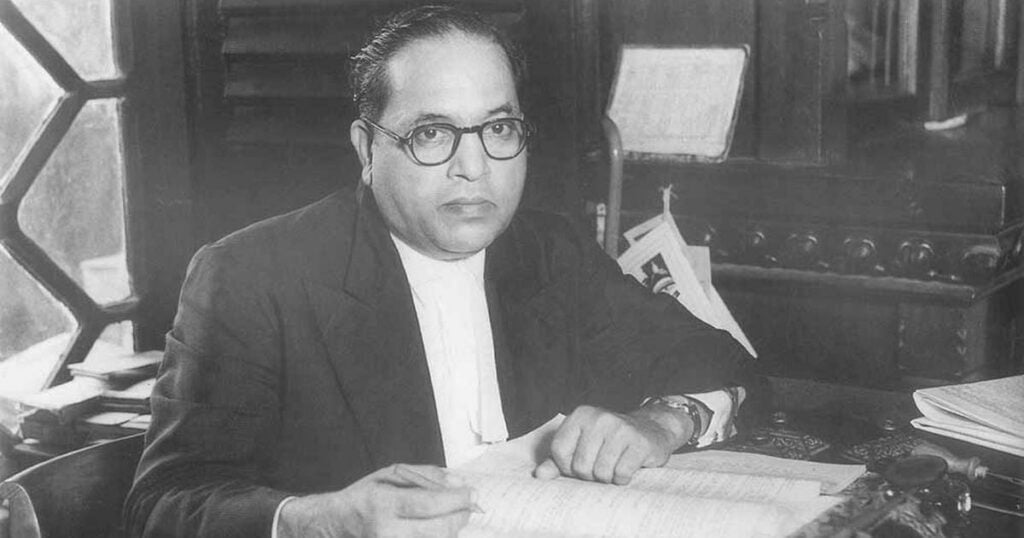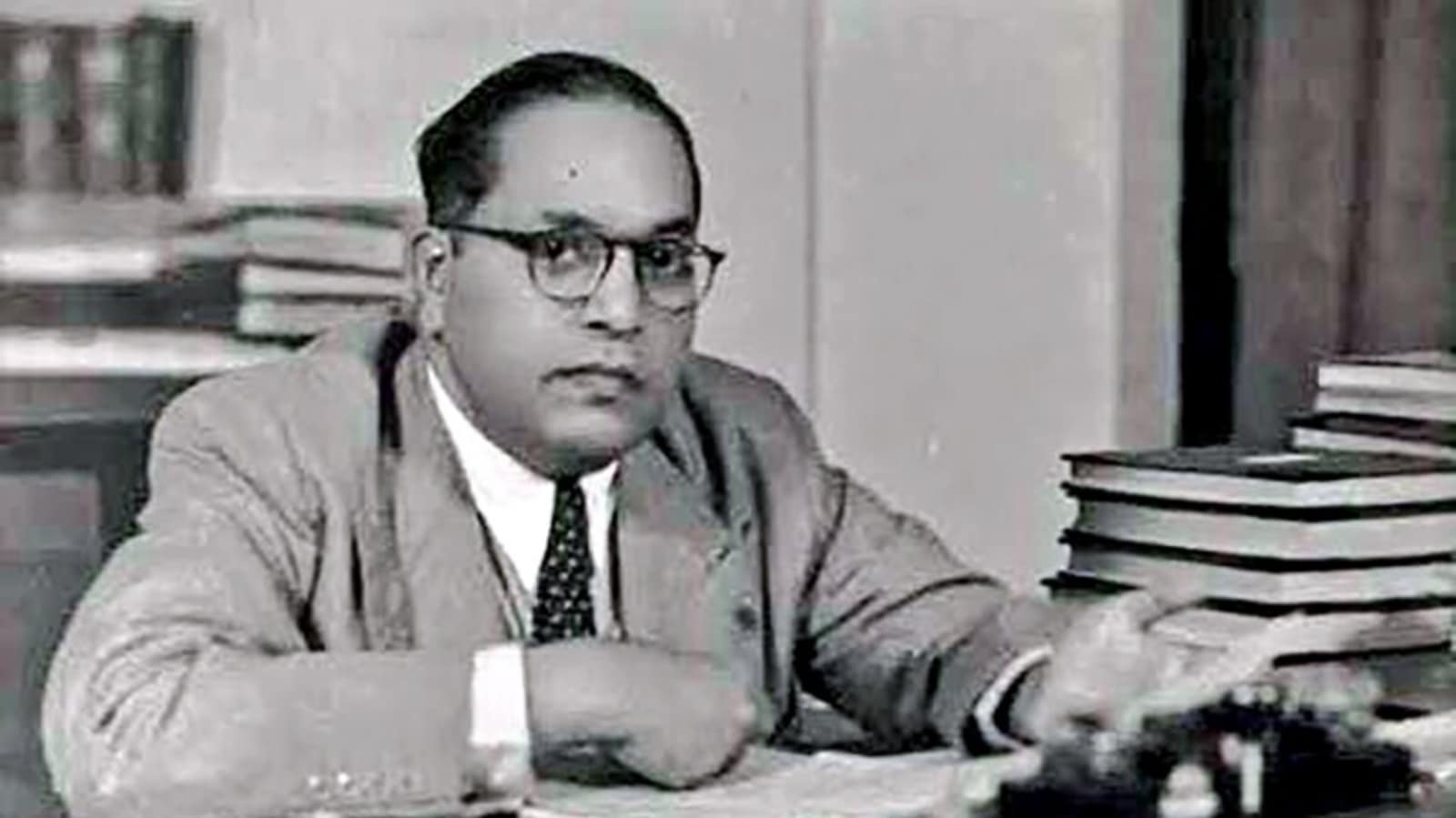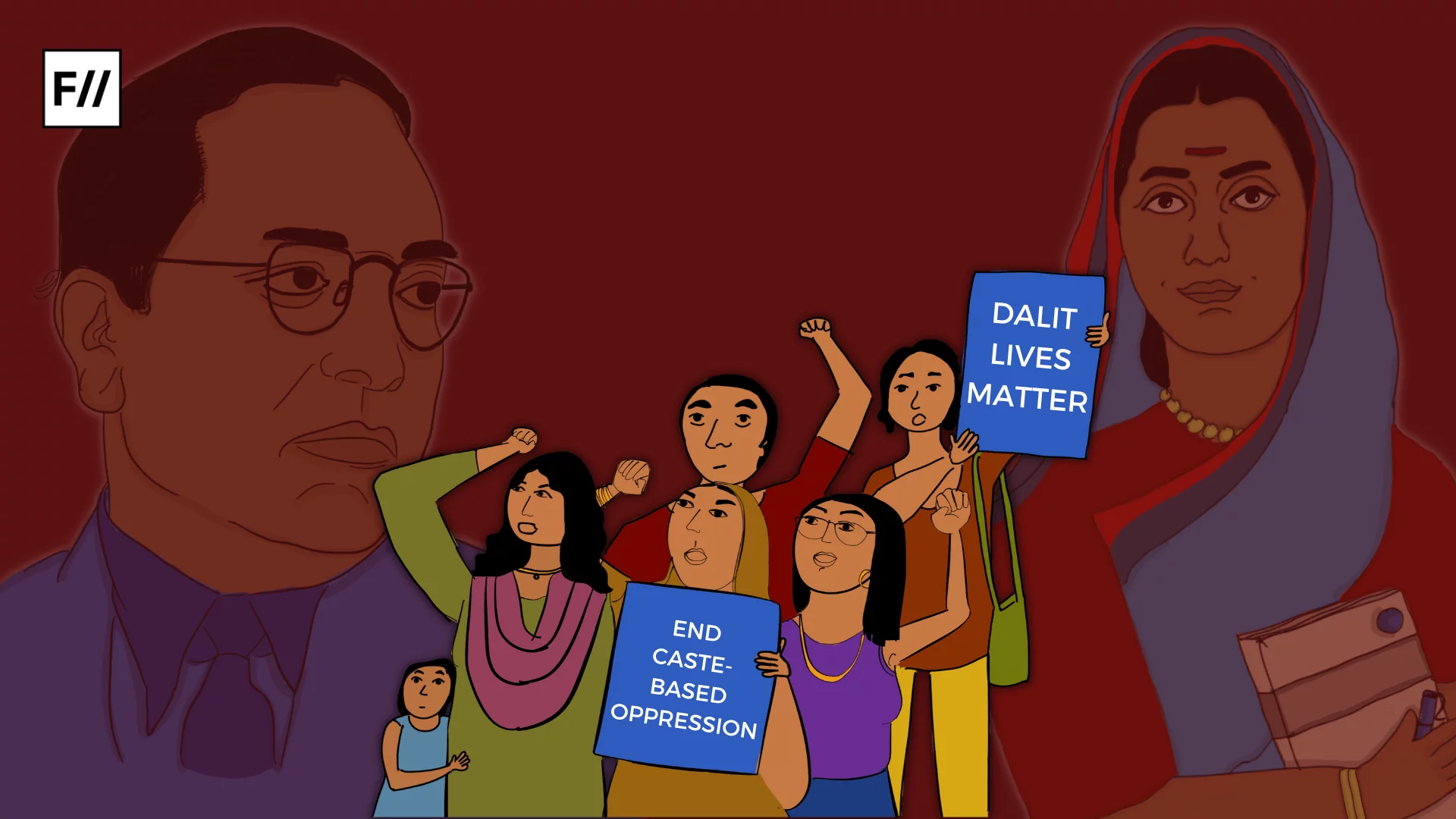Trigger Warning: Caste-based violence and abuse
A video of a controversial skit performed by students at Jain University’s “Youth Fest” recently went viral. The skit has been widely panned for its casteist and disrespectful content towards marginalised communities and for mocking Dr. BR Ambedkar. It revolved around a man from a lower caste attempting to pursue a girl from a higher caste while using offensive and derogatory language towards the disadvantaged class as well as Dr. BR Ambedkar, the father of the Indian Constitution.
The skit was titled “Beer Ambedkar,” and it included several other phrases that many people found as offensive. Furthermore, serious issues such as untouchability and casual casteism were mocked during the skit. The incident has sparked a heated debate on how caste prejudice and religious intolerance are seeping in educational institutions.
Religious intolerance on the other hand also takes many forms, from exclusion and discrimination against students of certain religions to outright religious discrimination and harassment. In some cases, students and faculty may also be subjected to violence or abuse based on their religious beliefs or practices, creating an unsafe and unwelcoming learning environment, which can impact a student’s mental health and academic performance.
Although it is disheartening, research shows that casteism is widespread and deeply ingrained in Indian higher education, particularly in technical fields like medicine and engineering. Despite the fact that educational institutions are intended to foster critical thinking, inclusivity, and knowledge, caste-based discrimination is often overlooked and ignored, both in overt and subtle ways. Sadly, many students, teachers, and administrators still cling to discriminatory beliefs and practices based on caste and religion.
One of the main ways that caste prejudice seeps into educational institutions is through the perpetuation of caste-based discrimination and stereotypes. Many people from lower castes still face discrimination and exclusion from higher caste students and faculty, which can lead to a lack of opportunities and representation. In some cases, students and faculty from lower castes are even denied access to basic facilities and resources in educational institutions. This creates an unequal learning environment and perpetuates the cycle of caste-based discrimination.
Also read: Public Universities: The Site For An Emerging Ambedkarite Struggle
Religious intolerance on the other hand also takes many forms, from exclusion and discrimination against students of certain religions to outright religious discrimination and harassment. In some cases, students and faculty may also be subjected to violence or abuse based on their religious beliefs or practices, creating an unsafe and unwelcoming learning environment, which can impact a student’s mental health and academic performance.
There have been several instances of discrimination against marginalised communities, including Dalit and Muslim students. In 2017, a group of Muslim students in Uttar Pradesh was forced to clean school toilets as a punishment for not singing the national anthem. Similarly, in 2018, Dalit students in Tamil Nadu were segregated during a parent-teacher meeting and denied access to the school library. In 2019, a Dalit student studying at the prestigious IIT Bombay was found dead in his hostel room. It was alleged that the student had been subjected to discrimination and harassment by his classmates because of his caste identity.

In 2020, a video of a teacher in a school in Madhya Pradesh went viral on social media, sparking outrage and condemnation. In the video, the teacher is seen asking students to identify their caste, one by one, in front of the entire class. It was not only a violation of the right to privacy but also perpetuated the harmful and discriminatory caste-based hierarchy that has plagued Indian society for centuries. In 2021, another tragic incident occurred in Karnataka where a Dalit student from a government school died by suicide. It was alleged that the student had been subjected to constant harassment and discrimination by his classmates and teacher due to his caste identity. These incidents demonstrate how deeply ingrained casteism is in India’s educational institutions, and the devastating impact it can have on the lives of marginalised students.
Discrimination based on caste identity can have a devastating impact on the student’s mental health and well-being, leading to a sense of hopelessness and despair. It is important to ensure that educational institutions are safe spaces for all students, regardless of their caste or background. This includes implementing strict anti-discrimination policies and providing support for students who are subjected to harassment or discrimination based on their caste identity. To promote a more inclusive and equitable society, it is crucial to acknowledge and address the issue of institutional casteism.
Although many people today openly discuss or even boast about their caste identity, this can have serious repercussions for marginalised communities, particularly for Dalit students who face pervasive discrimination and exclusion in educational institutions and society at large.
Also read: Dr. B R Ambedkar: A True Intersectional Feminist Thinker
For instance, we have all seen these stickers with statements like ” Proud Brahman,” “Rajputi Khoon,” or “Kshatriya Spirit” on cars or bikes. However, it’s unlikely to find similar symbols of lower caste identity, such as “Harijan” stickers on any vehicles. This stark difference in the public display of caste identity underscores the deeply entrenched inequalities and power imbalances that still persist in our society. This is just one of many subtle ways in which caste-based discrimination is normalised and perpetuated in everyday life.

This also highlights the critical importance of raising awareness and taking action to combat caste-based discrimination in educational institutions. Discrimination based on caste identity can have a devastating impact on the student’s mental health and well-being, leading to a sense of hopelessness and despair. It is important to ensure that educational institutions are safe spaces for all students, regardless of their caste or background. This includes implementing strict anti-discrimination policies and providing support for students who are subjected to harassment or discrimination based on their caste identity. To promote a more inclusive and equitable society, it is crucial to acknowledge and address the issue of institutional casteism. Unfortunately, there still exists a lack of knowledge, insensitivity, and casual ignorance in society regarding the issue. This is reflected in the current case, where a skit went through multiple rounds of approvals and was enacted on stage, despite being problematic and insensitive.
Also read: Book Review: Analysing Ambedkar: Towards An Enlightened India By Gail Omvedt
In the world of education, where knowledge and enlightenment should be the guiding light, it’s a shame that caste prejudice and religious intolerance continue to cast a dark shadow over our institutions. Educational institutions must uphold the values of equality, diversity, and inclusivity and that can only be achieved by recognising and challenging institutional casteism and promoting a culture of sensitivity and respect towards all members of the society, regardless of their caste or background. It is a shame that even today, Indian campuses promote institutional violence against marginalised communities and dare to mock historical legends like Dr. BR Ambedkar.




